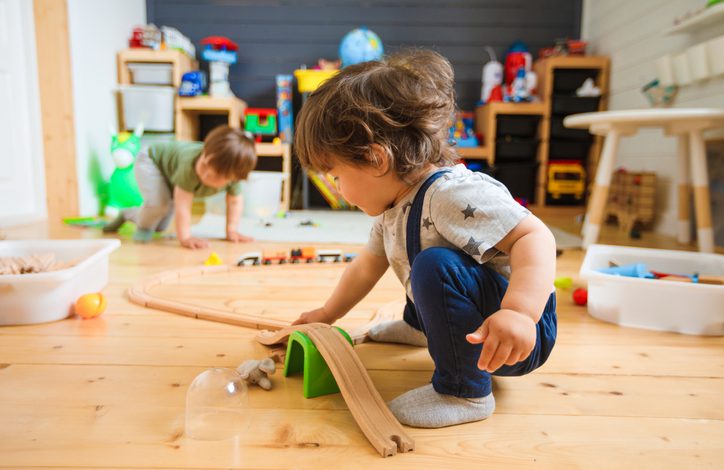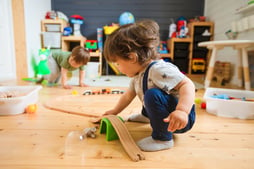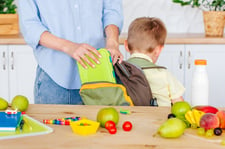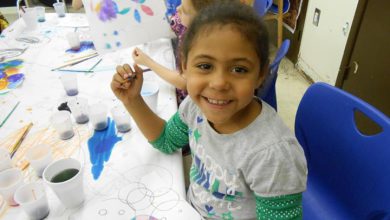Helping Kids Learn to Help Themselves

From the time a baby is born, ChildMind.org shares, they’re on their journey towards independence. This is a necessary process and, as parents, we can recognize it as a positive one. That said, it can take plenty of patience as tasks that young children undertake to take more time and often become quite messy. It’s easy, then, to just want to keep doing things for your toddlers.
The First Step To Developing Toddler Skills
The first tip, then, is crucial: give your toddlers opportunities to be independent. You may be used to putting their shoes by the door or their toys in the toybox—but, according to the National Association for the Education of Young Children, toddlers should be able to do simple tasks independently. They may not be fast yet, which means you’ll need to schedule more time, but it’s worth the payoff: your young child can feel capable. (Also note that toddlers often can’t transition from another activity to another quickly yet, so plan time for that, too.)
Then, as Parents.com advises, give them space, and let them learn through their mistakes. When you need to supervise them, do so discreetly. Children learn and develop when they have room to do things “on their own.” Although it may not make sense at first, your children’s mistakes are what teach them that it’s okay not to do something perfectly. When you see that they’ve made a mistake, brainstorm with them to come up with better ways for next time. This can give them a growth mindset and confidence that they can improve.
make sense at first, your children’s mistakes are what teach them that it’s okay not to do something perfectly. When you see that they’ve made a mistake, brainstorm with them to come up with better ways for next time. This can give them a growth mindset and confidence that they can improve.
Benefits of Gaining Independence
This provides them with a “sense of self,” one parenting blog explains. This will help them to also develop more self-esteem, armed with an understanding that they can accomplish tasks throughout their lives. This can also encourage them to help others; make better decisions by considering the pros and cons; and motivate them to try even more on their own. Achieving a sense of independence can allow a child to feel pride and happiness.
Encourage Free Play
As part of this process, ChildMind.org notes, allowing free play provides your toddler with ways to creatively problem solve. Provide them with materials (a busy bag) that they can use in fun ways—empty cereal bowls and paper towels, for example—plus crayons, finger paints, Legos, and more. It can be amazing to see what children can turn them into—all by themselves! Don’t do things for them but do encourage them: “What an interesting building you’re making out of blocks.”
example—plus crayons, finger paints, Legos, and more. It can be amazing to see what children can turn them into—all by themselves! Don’t do things for them but do encourage them: “What an interesting building you’re making out of blocks.”
Ways to Collaborate
Candokiddo.com shares different approaches. One of them is to start a task for your toddler and ask them to finish it (or at least take the next step). Conversely, you can have your toddler start the task and then you can do the finishing work.
When tasks are challenging or you have safety concerns, approach the project together, allowing your child to do what’s safe and age-appropriate—and you do the rest. When, on the other hand, projects are pretty basic, you can demonstrate—such as putting dirty towels in a laundry basket—and then have your toddler try. Or, as a final approach, get your toddler used to choosing between two items—shirts or snacks as examples—using words, not finger-pointing or reaching.
Bubble Tots Education Centers For Toddlers
Bubble Tots Education Centers offer many programs for toddlers and preschoolers. Our educators teach positive peer interaction and life skills. The goal is to prepare them for preschool and beyond, both socially and academically. If you’re interested in learning more about the programs we offer, don’t hesitate to contact us or schedule a tour today.





